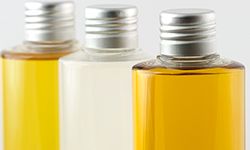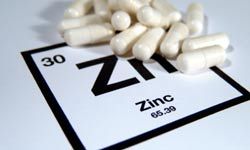It's Tyra Banks' biggest beauty secret and a lip balm British women can't live without: petroleum jelly (also known as petrolatum, but most of us call it by its trademark, Vaseline).
Petroleum jelly is fat. It's a purified mixture of semi-solid hydrocarbons derived from petroleum -- yes, the same petroleum used for gasoline and diesel fuels and other products such as deodorant and bubble gum. It's a staple in our medicine chests as a topical ointment and it's also used for everything from shining shoes to silencing a squeaky hinge. Petroleum jelly is an oil-based emollient (it repels water), which makes it a long-lasting lubricant to smooth and protect rough and dry skin. How? Emollients help to replace lipids by filling in gaps in between skin cells. The result? Soft, well-hydrated skin. Here we have five ways petroleum jelly helps to improve skin, beginning feet first.
Advertisement



